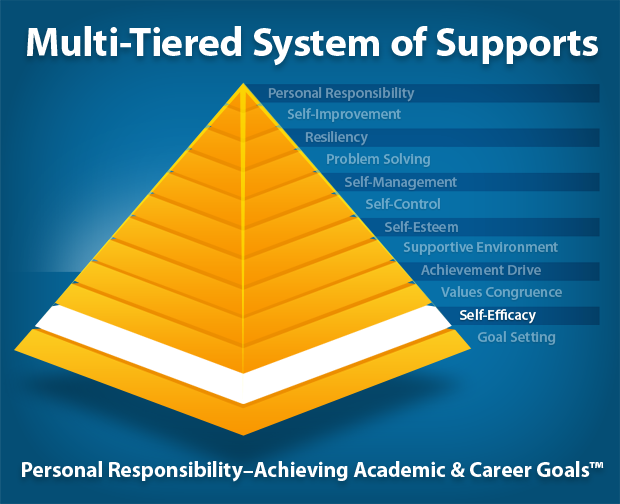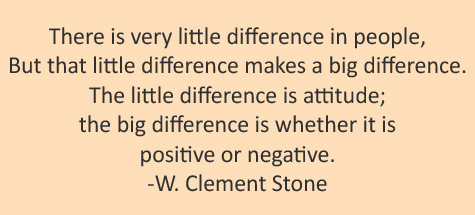
Self –Efficacy is your view of possibilities, or the extent to which your view your goals as within your ability to achieve, given your existing knowledge and skills. It is the second scale in our Personal Skills Map.
Multi-Tiered System of Supports, or MTSS, is a term used to describe an evidence-based model of schooling that uses data-based problem solving to integrate academic and behavioral instruction and intervention (Florida’s MTSS Project). This definition brings together the worlds of academic instruction and behavioral intervention. In the MTSS model, helping students learn how to set and achieve goals is a core skill. Self-Efficacy is belief in one’s ability to achieve stated goals. Setting goals is one thing, but believing you can achieve them is another.
Self-Efficacy Theory
The psychologist Albert Bandura developed the self-efficacy theory, which states that the higher a person’s feelings of self-efficacy, the better the person performs on a task. Bandura says that people’s beliefs in their self-efficacy affects the course of action they choose. It also affects how much effort they will make to achieve, and how long they will try. People are more likely to follow a course of action if they believe they can achieve their goals. If people believe that they do not have the power to get results, they will not try.
Attitudes and Self-Efficacy
Your thoughts about yourself show your attitude about yourself. Your attitudes control your belief system. This is why it is so important to the success of your students to teach them these simple rules to improve their attitudes.
John C. Maxwell, in his book The Winning Attitude: Your Key to Personal Success, presents several facts about attitudes. Here are a few of them:
- Our approach to life is determined by our attitudes.
- Our friendships are determined by our attitudes. Our success in life will be greatly influenced by the friendships we keep.
- Often the only difference between success and failure is our attitude.
- The result of a task is affected, more than anything else, by our attitude.
- Problems can be turned into blessings by our attitude.
- Our attitude can create a positive outlook.
Want to learn more about how self-efficacy can affect your students’ academic performance? Sign up for our free trial and explore the Personal Responsibility program.


